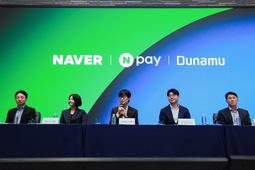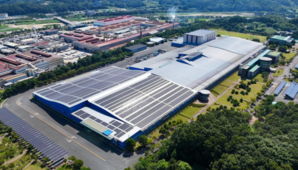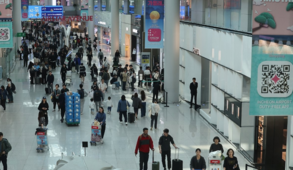
[News Space=Reporter seungwon lee] HY (formerly Korea Yakult, CEO Byun Byung-gu) saw a decline in both sales and profitability in 2024 due to the economic downturn and difficulties caused by rising raw material costs. In particular, net loss reached KRW 56.4 billion, up 250% from the previous year.
According to the audit report of the Financial Supervisory Service's electronic disclosure system on the 4th, hy recorded sales of 1.355 trillion won and operating profit of 58.2 billion won last year. Sales and operating profit fell 4.7% and 14.9% year-on-year, respectively. In particular, net loss increased 252% year-on-year from 16 billion won to 56.4 billion won, worsening profitability.
The loss due to equity method valuation surged 35.4% from KRW 83.6 billion the previous year to KRW 113.2 billion. The equity method is an accounting method in which a company reflects profits and losses equivalent to its investment share in the financial statements based on the net income and losses of the investee company (affiliate company).
In the case of HY, a valuation loss of 113.2 billion won was incurred due to large-scale losses such as poor management and decline in asset value in affiliated companies. This loss directly affects net income for the period and is linked to the weakening of the company's financial soundness.
In particular, the loss of KRW 217.4 billion from its affiliate HYSG PTE LTD (Singaporean subsidiary) is a major example of investment failure. In addition, HY acquired a 66.7% stake in Mesh Korea, the operator of the delivery agency platform 'Vroong', for KRW 80 billion, becoming the largest shareholder.
However, Mesh Korea's deficit widened from the previous year to KRW 340 billion in sales, KRW 26.9 billion in operating loss, and KRW 26.4 billion in net loss in 2024. Due to this accumulated loss, it has reached a state of capital erosion. Capital erosion is evaluated as a situation where it is difficult for a company to maintain normal operations, and it will have a negative impact on future market confidence.
Another risk factor is that five lawsuits are ongoing due to legal disputes. A total of 5.8 billion won has been set aside for lawsuit costs. Of these, there are two lawsuits worth 670 million won related to patent infringement lawsuits, and a lawsuit for damages for illegal acts worth 5 billion won is in progress.
The dividend per share was set at 1,250 won (25% of the par value of 5,000 won), and the total dividend was paid at 12.5 billion won, the same as the previous year.
The total compensation of HYU executives is 5.8 billion won.
The total number of employees at HYU is 1,059 (based on the National Pension Service and Public Data Portal), and the average salary of employees was 64.2 million won, a 3.2% increase from the previous year. This is a high level compared to the manufacturing/chemical industry average.
The debt ratio rose slightly to 24.6% from 23.1% in 2023. Total capital decreased by 24.3% to KRW 1.1106 trillion from KRW 1.4673 trillion the previous year. Total debt increased by 3% to KRW 273.6 billion from KRW 265.6 billion the previous year.
Looking at the management structure of HY, the largest shareholder of HY is Paldo Co., Ltd., which holds a 40.83% stake. Japan's Yakult Honsha, which was the largest shareholder until 2010, maintains its position as the second largest shareholder as of 2024.
In addition, Paldo is a private company in which Chairman Yoon Ho-joong owns 100% of the shares, and through this, Chairman Yoon Ho-joong effectively controls HYU. As the Korea Yakult Group transitioned to a holding company system, it established a management structure that goes as 'Yoon Ho-joong → Paldo → Korea Yakult (currently hy)'.
In the past, Chairman Yoon Ho-joong owned a 17.33% stake in HY, but the structure has now changed to indirectly owning HY through Paldo.
Yoon Ho-joong is the sixth child and only son of the late Yoon Deok-byeong, the founder of the company, and has five older sisters (Yoon Hye-joong, Yoon Hwa-joong, Yoon Gwi-joong, Yoon Jeong-won, and Yoon Gwi-young). It is known that the family members do not directly participate in the management of HY or Paldo. After the late Chairman Yoon Deok-byeong passed away, the mansion and land in Seongbuk-dong, Seoul were divided and inherited by his wife Shim Jae-soo and his son Yoon Ho-joong.
The compensation that Chairman Yoon Ho-joong received directly from HWY was not clearly disclosed, but Chairman Yoon, who owns 100% of Paldo's shares, received 44.1 billion won in dividend income.
The dividends that Chairman Yoon received from Paldo were 9.9 billion won in 2019, 8.8 billion won in 2020, 9.4 billion won in 2021, 11.1 billion won in 2022, and 21.5 billion won in 2023. The total dividends received from Paldo over the past six years is a whopping 104.8 billion won, which is a whopping amount of over 100 billion won.
Chairman Yoon Ho-joong also took all of the dividends from Plus Asset Management, another company he 100% owned. In particular, the company continued to pay dividends even in years when it recorded a net loss, and its high dividend payout ratio (up to 481%) caused controversy.
An industry financial expert said, "Paldo's dividend payout ratio has been steadily increasing for the past several years, and Chairman Yoon Ho-joong has been receiving a huge amount of dividends every year. In other words, it is being criticized for being operated in a way that is advantageous to one individual owner," adding, "It is difficult to avoid criticism that the high dividend payout ratio in a situation where the stake is 100% held is focused on maximizing the owner's family's profits rather than reinvestment."
Another corporate financial analysis expert said, "HWY is focusing on overseas expansion and digital transformation to overcome the growth limits of the traditional dairy business, but frequent overseas investment failures and legal disputes are major factors weakening its financial soundness." He added, "Whether the subsidiary restructuring is completed by mid-2025 and the performance of overseas businesses appear to be key to restoring future growth momentum."
Meanwhile, HWY (hereinafter referred to as “the Company”) is a foreign investment company established on November 27, 1969, and manufactures and sells fermented milk products and health functional foods. It produces products in three factories, including Cheonan, Nonsan, and Pyeongtaek, and sells products through approximately 532 sales networks nationwide.
The current paid-in capital is 50 billion won, and the largest shareholder is Paldo Co., Ltd., which owns a 40.83% stake. In April 2021, the company changed its name from Korea Yakult to HWY.
Hy Group has two listed companies and approximately 30 subsidiaries and affiliates.
Subsidiaries include Medical Group Namu, NE Neungryul (formerly Neungryul Education, listed on KOSDAQ), Jay Leisure, Birak, HY Mobility, HPI, HYSG PTE LTD., Vroong, Dosirak Leezan, C&I, Ikrux New Growth No. 1 Investment Association, and Hi-Knock.
Affiliated companies include Curexo (KOSDAQ listed), KOYA, Newmed, Twobit, Naunong Food Investment Fund 4, and Ansim LPC.
Its subsidiaries include Think Surgical Inc., Dosirak Nizni, Bburung Riders, and Bburung Logistics.
The subsidiaries of the largest shareholder of HYY include Paldo Tech Pack, and other special related companies include Plus Asset Management and the Uduk Yoon Deok Byeong Foundation.
























































